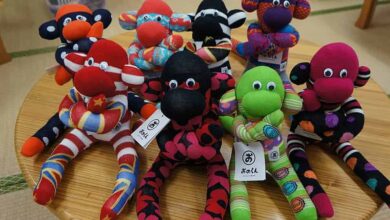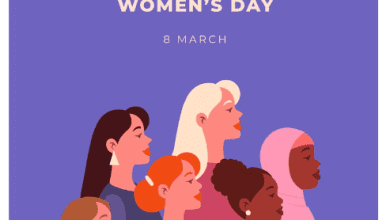March
National Native HIV/AIDS Awareness Day In United States 2024
Breaking Silence: Commemorating National Native HIV/AIDS Awareness Day
Join the conversation surrounding National Native HIV/AIDS Awareness Day in the United States. Discover impactful stories, advocacy efforts, and the collective journey towards eradicating stigma and promoting education.
Read also:
Quick Facts
- Date: March 20th of every year
- Main Components: HIV education, testing, prevention, and treatment in Native communities
- Popularity: An annual observance since 2007
- Pairings: Let’s Stop HIV Together campaign, Indigenous HIV/AIDS Syndemic Strategy, Tribal HIV/STD Training Kit
- Variations: Different themes and activities each year
Introduction
- What is National Native HIV/AIDS Awareness Day (NNHAAD)?
- National Native HIV/AIDS Awareness Day (NNHAAD) is an annual observance to raise awareness about the impact of HIV/AIDS on Native American, Alaska Native, and Native Hawaiian communities.
- It is also a day to honor those who have been affected by the virus and to celebrate the resilience and strength of Native people.
- When is NNHAAD?
- NNHAAD is observed on the first day of spring each year, which is a time of renewal and hope for many Native cultures.
- The 2023 observance is recognized on March 20th.
- What is the theme of NNHAAD 2023?
- The theme for 2023 is “Weaving our Horizon: Strength. CommUnity. Equity.
- This theme reflects the importance of weaving together the national HIV, STI, and viral hepatitis plans, addressing the social determinants of health, and promoting health equity for Native communities.
Related: French Language Day 2023
Background
- What is HIV/AIDS?
- HIV stands for human immunodeficiency virus, which attacks the body’s immune system and can lead to acquired immunodeficiency syndrome (AIDS) if left untreated.
- AIDS is the most advanced stage of HIV infection, where the immune system is severely damaged and opportunistic infections or cancers can occur.
- How is HIV transmitted?
- HIV is transmitted through certain body fluids, such as blood, semen, vaginal fluid, and breast milk, that come in contact with a mucous membrane, damaged tissue, or directly into the bloodstream.
- The most common modes of transmission are sexual contact, injection drug use, mother-to-child transmission, and occupational exposure.
- How can HIV be prevented?
- HIV can be prevented by using condoms, pre-exposure prophylaxis (PrEP), post-exposure prophylaxis (PEP), sterile injection equipment, and HIV testing and treatment.
- HIV testing is the first step to know one’s HIV status and access care and prevention services.
- HIV treatment can reduce the amount of virus in the body to undetectable levels, which means that the person cannot transmit HIV to others.
Related: International Francophonie Day 2023
Data and Disparities
- What is the HIV epidemic among Native Americans, Alaska Natives, and Native Hawaiians?
- According to the CDC, Native Americans and Alaska Natives had the fourth highest rate of new HIV diagnoses in the United States in 2019, after African Americans, Hispanics/Latinos, and Native Hawaiians/Other Pacific Islanders.
- Native Hawaiians and Other Pacific Islanders had the third highest rate of HIV diagnoses in the United States in 2019, after African Americans and Hispanics/Latinos.
- Native Americans and Alaska Natives had the lowest percentage of people living with diagnosed HIV who were virally suppressed in 2018, at 54.3%, compared to the national average of 64.7%.
- Native Hawaiians and Other Pacific Islanders had the second lowest percentage of people living with diagnosed HIV who were virally suppressed in 2018, at 57.6%, compared to the national average of 64.7%.
- What are the factors that contribute to the HIV disparities among Native communities?
- Some of the factors that contribute to the HIV disparities among Native communities are poverty, lack of access to health care, stigma, discrimination, homophobia, substance use, sexual violence, historical trauma, and cultural disconnection.
- These factors can affect the risk behaviors, testing behaviors, and health outcomes of Native people living with or at risk for HIV.
- These factors can also create barriers to implementing effective HIV prevention and care programs in Native communities.
Resources and Initiatives
- What are some of the resources and initiatives that support NNHAAD and Native HIV awareness?
- The National Native HIV Network (NNHN) is a coalition of Native organizations and individuals that work to address the HIV epidemic in Native communities.
- The NNHN hosts the annual NNHAAD celebration, which includes a virtual symposium, a Facebook Live event, a storytelling session, and a Q&A blog.
- The NNHN also provides NNHAAD campaign resources, such as posters, brochures, fact sheets, infographics, and social media posts, that can be downloaded and shared.
- The CDC’s Let’s Stop HIV Together campaign features stories and videos of Native people living with or affected by HIV, as well as information and resources on HIV testing, prevention, and treatment.
- The Indian Health Service (IHS) provides HIV testing, care, and treatment services to Native Americans and Alaska Natives through its facilities and partner organizations.
- The IHS also supports the development and implementation of HIV prevention and care programs in Native communities, such as the Tribal HIV/STD Training Kit and the Indigenous HIV/AIDS Syndemic Strategy.
- The Pacific AIDS Education and Training Center (PAETC) provides HIV education and training to health care providers and community members in Hawai’i and the U.S. Pacific Islands.
- The PAETC also supports the Hawai’i Health & Harm Reduction Center, which offers HIV testing, care, and treatment services to Native Hawaiians and Pacific Islanders.
NATIONAL NATIVE HIV/AIDS AWARENESS DAY IN UNITED STATES WISHES, QUOTES, AND MESSAGES
TOP 20 NATIONAL NATIVE HIV/AIDS AWARENESS DAY IN UNITED STATES WISHES AND GREETINGS
Here are 20 unique National Native HIV/AIDS Awareness Day wishes and greetings for United States:
- “On National Native HIV/AIDS Awareness Day, let’s stand united in raising awareness and eradicating stigma. Together, we can create a healthier and more informed future for all.”
- “Wishing you a day filled with empowerment, education, and support on National Native HIV/AIDS Awareness Day. Your strength and resilience inspire us all.”
- “May this National Native HIV/AIDS Awareness Day bring us closer to a world where health disparities are eliminated, and every individual receives the care they deserve. Stay strong!”
- “Sending love and solidarity on National Native HIV/AIDS Awareness Day. Your strength and determination in the face of challenges are truly commendable.”
- “Happy National Native HIV/AIDS Awareness Day! Let’s spread knowledge, break stereotypes, and work towards a future where everyone has access to quality healthcare.”
- “On this special day, let’s honor the strength of Native communities in the fight against HIV/AIDS. Your resilience lights the path to a healthier tomorrow. Happy National Native HIV/AIDS Awareness Day!”
- “Wishing you a day filled with hope, compassion, and unity on National Native HIV/AIDS Awareness Day. Together, we can make a difference.”
- “Happy National Native HIV/AIDS Awareness Day! Your commitment to raising awareness and promoting education is making a positive impact. Keep shining your light!”
- “May this National Native HIV/AIDS Awareness Day be a reminder of the importance of community, support, and understanding. Wishing you strength on this journey.”
- “Sending heartfelt wishes on National Native HIV/AIDS Awareness Day. Your dedication to breaking down barriers and fostering understanding is truly inspiring.”
- “Happy National Native HIV/AIDS Awareness Day! May this day inspire us to work together in creating a world where healthcare is accessible to all, regardless of background.”
- “Wishing you courage and resilience on National Native HIV/AIDS Awareness Day. Your advocacy and awareness efforts contribute to a healthier future for all.”
- “On this National Native HIV/AIDS Awareness Day, let’s celebrate the progress made and recommit to the fight against stigma and discrimination. Together, we can make a difference.”
- “Happy National Native HIV/AIDS Awareness Day! Your commitment to education and awareness is a beacon of hope for a healthier, more informed society.”
- “May this National Native HIV/AIDS Awareness Day bring us one step closer to a world where everyone is treated with dignity, respect, and access to healthcare. Stay strong!”
- “Wishing you a day filled with empowerment, education, and support on National Native HIV/AIDS Awareness Day. Your resilience is a testament to the strength of your community.”
- “Happy National Native HIV/AIDS Awareness Day! Let’s join hands in breaking down barriers, promoting education, and fostering a future free from discrimination and stigma.”
- “On this special day, let’s honor the strength and resilience of Native communities in the face of HIV/AIDS. Your efforts are making a positive impact. Happy National Native HIV/AIDS Awareness Day!”
- “Wishing you a day filled with hope, compassion, and unity on National Native HIV/AIDS Awareness Day. Together, we can create a world where healthcare is a right for all.”
- “Happy National Native HIV/AIDS Awareness Day! Your dedication to raising awareness and promoting education is making a positive impact. Keep shining your light!”
TOP 20 NATIONAL NATIVE HIV/AIDS AWARENESS DAY IN UNITED STATES QUOTES
Here are 20 unique National Native HIV/AIDS Awareness Day quotes for United States:
- “On National Native HIV/AIDS Awareness Day, let’s echo the strength of our indigenous communities and stand united against HIV/AIDS. Knowledge is power, and together we can make a difference.”
- “In the spirit of resilience and unity, National Native HIV/AIDS Awareness Day reminds us that every voice matters. Let’s amplify awareness and break the silence surrounding HIV/AIDS in Native communities.”
- “As we commemorate National Native HIV/AIDS Awareness Day, let us remember that knowledge is a powerful tool in the fight against HIV/AIDS. Education empowers, and united, we can conquer any challenge.”
- “National Native HIV/AIDS Awareness Day is a call to action, urging us to dismantle the barriers that perpetuate health disparities. Together, we can create a future where every individual receives the care they deserve.”
- “In the tapestry of our shared humanity, let’s weave threads of understanding, compassion, and awareness. National Native HIV/AIDS Awareness Day is a reminder that our collective efforts can bring about positive change.”
- “On this day, we honor the strength of Native communities in the face of HIV/AIDS. Let’s illuminate the path to health equity and eliminate the shadows of stigma. United, we can achieve a brighter future.”
- “National Native HIV/AIDS Awareness Day calls for solidarity, education, and compassion. Each step forward is a step toward a world free from discrimination, where healthcare is a fundamental right for all.”
- “The journey to eradicate HIV/AIDS begins with awareness. On National Native HIV/AIDS Awareness Day, let’s strive for a future where health disparities are eradicated, and everyone receives equal care.”
- “In the mosaic of diversity, every piece is vital. National Native HIV/AIDS Awareness Day reminds us that embracing our differences and fostering awareness are key to overcoming the challenges of HIV/AIDS.”
- “As we commemorate National Native HIV/AIDS Awareness Day, let’s remember that knowledge is a catalyst for change. By breaking down stereotypes and fostering understanding, we pave the way for a healthier tomorrow.”
- “United we stand, resilient in the face of adversity. On National Native HIV/AIDS Awareness Day, let’s amplify our voices, break the chains of stigma, and work towards a world where everyone has access to quality healthcare.”
- “National Native HIV/AIDS Awareness Day is a beacon of hope, a day to celebrate the strength of Native communities. Let’s join hands in spreading awareness, eradicating stigma, and building a future free from discrimination.”
- “Education is the cornerstone of progress. On National Native HIV/AIDS Awareness Day, let’s commit to learning, understanding, and dismantling the barriers that hinder health equity for all.”
- “In the symphony of health advocacy, let our voices harmonize for change. National Native HIV/AIDS Awareness Day is a reminder that every note, every action, contributes to the melody of progress.”
- “National Native HIV/AIDS Awareness Day urges us to be torchbearers of awareness and advocates for change. Together, we can illuminate the path to a future free from the shadows of HIV/AIDS stigma.”
- “On this day, let’s reflect on the resilience of Native communities and pledge to be catalysts for change. National Native HIV/AIDS Awareness Day is a call to action for a future where health disparities no longer exist.”
- “In the spirit of unity and understanding, National Native HIV/AIDS Awareness Day empowers us to challenge the status quo. Let’s break down the walls of stigma and build bridges to a future where everyone receives equitable care.”
- “As we mark National Native HIV/AIDS Awareness Day, let’s recognize the strength of indigenous communities in the face of adversity. Together, we can create ripples of change that resonate far beyond this day.”
- “National Native HIV/AIDS Awareness Day calls for a collective commitment to education, empathy, and action. Let’s stand together to eliminate the barriers that hinder health equity for all.”
- “On this day of reflection and action, National Native HIV/AIDS Awareness Day inspires us to be agents of change. Let’s strive for a world where every individual, regardless of background, receives the care they need and deserve.”
TOP 20 NATIONAL NATIVE HIV/AIDS AWARENESS DAY IN UNITED STATES MESSAGES/SMS
Here are 20 unique National Native HIV/AIDS Awareness Day messages for United States:
- “On National Native HIV/AIDS Awareness Day, let’s join hands to spread awareness, eliminate stigma, and foster a future where healthcare is a right for all. Your voice matters in this crucial conversation!”
- “Wishing you a day filled with strength and unity on National Native HIV/AIDS Awareness Day. Together, we can break down barriers, amplify awareness, and create a healthier, more informed world.”
- “Happy National Native HIV/AIDS Awareness Day! May this day inspire us to learn, empathize, and take action. Your commitment to awareness is making a difference in the fight against HIV/AIDS.”
- “As we commemorate National Native HIV/AIDS Awareness Day, let’s celebrate the resilience of Native communities. Your dedication to raising awareness is a beacon of hope for a future free from discrimination.”
- “Sending love and solidarity on National Native HIV/AIDS Awareness Day. Your advocacy is instrumental in breaking down barriers and fostering understanding. Keep shining a light on this important issue!”
- “Wishing you a day filled with empowerment, education, and support on National Native HIV/AIDS Awareness Day. Together, we can make strides towards a world where everyone receives equitable healthcare.”
- “Happy National Native HIV/AIDS Awareness Day! Your commitment to breaking stereotypes and fostering awareness is commendable. Let’s work together to create a future free from the shadows of stigma.”
- “On this special day, let’s honor the strength of Native communities in the face of HIV/AIDS. Your efforts contribute to a healthier future for all. Happy National Native HIV/AIDS Awareness Day!”
- “May National Native HIV/AIDS Awareness Day be a reminder of the importance of community, support, and understanding. Your resilience in the face of challenges is truly inspiring.”
- “Wishing you courage and determination on National Native HIV/AIDS Awareness Day. Your advocacy and awareness efforts are making a positive impact. Keep inspiring change!”
- “Happy National Native HIV/AIDS Awareness Day! Let’s spread knowledge, break stereotypes, and work towards a future where everyone has access to quality healthcare. Your voice is a powerful force for change.”
- “On this day, let’s unite in the fight against HIV/AIDS, fostering a world where health disparities are eliminated. National Native HIV/AIDS Awareness Day is a call to action for a healthier, more equitable future.”
- “Wishing you a day filled with hope, compassion, and unity on National Native HIV/AIDS Awareness Day. Your dedication to raising awareness and promoting education is making a positive impact.”
- “Happy National Native HIV/AIDS Awareness Day! Your commitment to education and awareness is a testament to your strength and resilience. Keep shining your light in the fight against HIV/AIDS.”
- “May National Native HIV/AIDS Awareness Day inspire us all to break down barriers, challenge stereotypes, and build a more inclusive future. Together, we can make a lasting impact in the fight against HIV/AIDS.”
- “On this special day, let’s celebrate the progress made and recommit to the fight against stigma and discrimination. National Native HIV/AIDS Awareness Day is a reminder that every action counts.”
- “Happy National Native HIV/AIDS Awareness Day! Your dedication to raising awareness and fostering understanding is making a positive impact. Keep being a beacon of change in the fight against HIV/AIDS.”
- “Wishing you a day of reflection and action on National Native HIV/AIDS Awareness Day. Your commitment to breaking down barriers and promoting awareness is crucial in the fight against HIV/AIDS.”
- “Happy National Native HIV/AIDS Awareness Day! Your strength and resilience in the face of challenges inspire us all. Let’s continue working together for a future free from the stigma of HIV/AIDS.”
- “On this day, let’s honor the strength and resilience of Native communities in the face of HIV/AIDS. National Native HIV/AIDS Awareness Day is a reminder that together, we can make a meaningful difference in the fight against stigma and discrimination.”
Conclusion
- What are the main messages and calls to action for NNHAAD?
- The main messages and calls to action for NNHAAD are:
- HIV affects Native communities disproportionately and urgently requires attention and action.
- HIV testing is the first step to know one’s HIV status and access care and prevention services.
- HIV treatment can help people living with HIV achieve viral suppression and prevent transmission to others.
- HIV prevention strategies, such as condoms, PrEP, PEP, and sterile injection equipment, can reduce the risk of acquiring or transmitting HIV.
- HIV stigma and discrimination can negatively affect the health and well-being of Native people living with or at risk for HIV and should be challenged and eliminated.
- Native communities have the strength, resilience, and wisdom to address the HIV epidemic and promote health and healing for their people.
- Native people can join the NNHAAD celebration and support the NNHAAD campaign by visiting www.nnhaad.org, following the NNHN on social media, sharing the NNHAAD resources and stories, and getting tested and treated for HIV.



